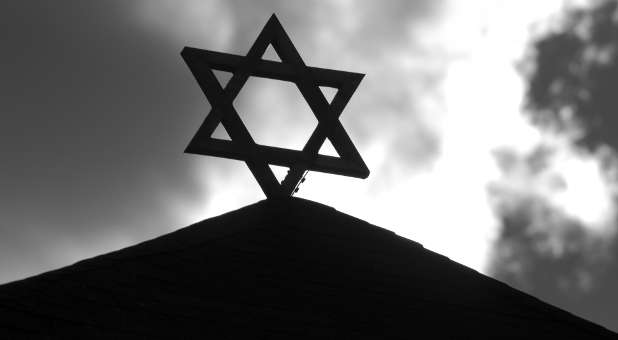How Non-Jews Came to Embrace a Jewish Messiah
In the days of the apostles, Christianity was not yet a separate religion from Judaism. An honest reading of the New Testament from a Jewish perspective makes it clear the first-century church never thought of itself as separate and excluded from Judaism.
Rather, the early disciples of Yeshua considered themselves to be at the center of the people of Israel. The Jewish disciples never imagined they were introducing a new religion to replace Judaism. They might have considered themselves to be bringing a restoration within Judaism, but they did not think of themselves as a separate entity.
The writings of the apostles assume the believers to be a sect within the larger religion of Judaism. Jesus was actually a Jewish teacher of Torah. His Hebrew name—that is, His real name—was Yeshua. He kept the Torah, taught the Torah and lived by the Torah. He taught His disciples to keep the Torah in imitation of Him. He argued with the teachers of other sects of Judaism. He denounced the Sadducees, rebuked the Pharisees and brought correction to their teachings, but He did not institute a new religion, nor did He cancel the Torah. Instead, He sought to bring restoration to the ancient faith of Abraham, Isaac and Jacob. He diligently sought after the lost sheep of Israel—those who had turned away from Torah. He affirmed the words of Moses and brought clarification regarding the proper observance of God’s Law. His followers, the apostles and the believers, also remained within the parameters of normative, first-century Jewish expression. They met daily in the Temple. They congregated in synagogues. They proclaimed the Scriptures of Israel. They kept the biblical festivals, the Sabbaths, the dietary laws and the whole of Torah as best they were able. They were all Jews.
Gentile Inclusion
When non-Jews began to enter the faith through the ministry of Paul of Tarsus, they too congregated in synagogues and embraced the standards of Judaism. They understood themselves to be “grafted in” to the nation of Israel and made citizens of the larger “commonwealth of Israel.” They considered themselves to be co-heirs of the kingdom and co-religionists with the Jewish people.
The apostles disagreed over their status. Should they be required to become Jewish and keep the whole Torah as Jews, or was it sufficient for them to remain as non-Jews and observe only those commandments that applied to the strangers among Israel? Paul, the apostle to the Gentiles, argued fiercely for their inclusion as Gentiles. He argued that the Gentiles need not be “under the law” (i.e., Jewish) in order to be saved. He argued that they were saved by grace, not by the “works of the Law” (becoming Jewish). Not everyone agreed with his ideas.
The apostles met to discuss the question, and they decided to adopt the latter course. They ruled that ritual conversion (“circumcision”) was not required of the Gentile disciples. Neither were they required to forsake their ethnic identity and become Jewish.
Yet their faith was the faith of Israel, placed in the Messiah of Israel, and they henceforth practiced the religion of Israel. They observed the laws of the Torah that applied to them as Gentiles among the people of Israel. They congregated with the Jewish people and participated in the life of Torah as God-fearers and sojourners within the nation. {eoa}
The preceding was excerpted from the book Restoration by Daniel Thomas Lancaster (2005, published by First Fruits of Zion and copyright D. Thomas Lancaster, all rights reserved). You can order it free here.
Daniel Thomas Lancaster is a writer, teacher and the Director of Education at the Messianic ministry of First Fruits of Zion (www.ffoz.org), an international ministry with offices in Israel, Canad, and USA, bringing Messianic Jewish teaching to Christians and Jews. He is the author of several books about the Jewish roots of Christianity and the Jewishness of the New Testament, and he is the author of the Torah Club Bible study program (torahclub.org). He also serves as the teaching pastor at Beth Immanuel (bethimmanuel.org), a Messianic Jewish synagogue in Hudson, Wisconsin. Daniel can be reached at [email protected].













































